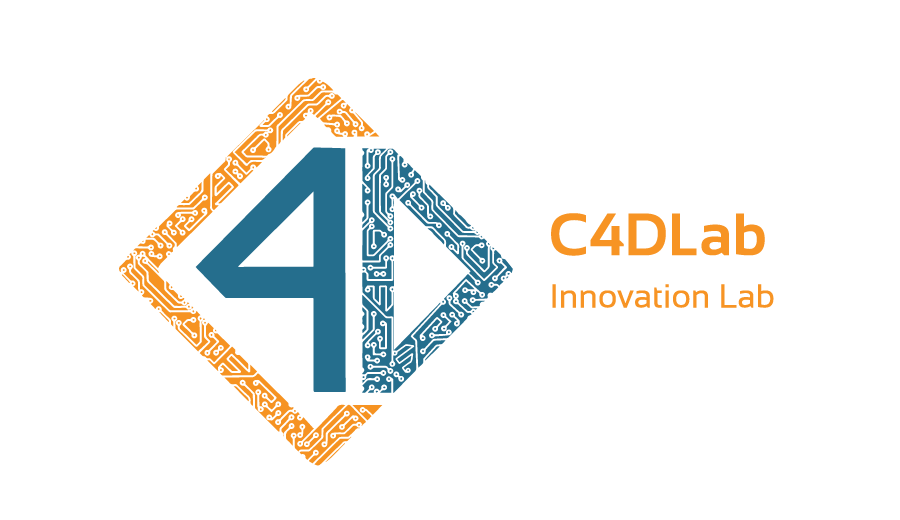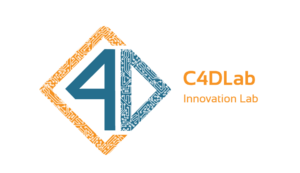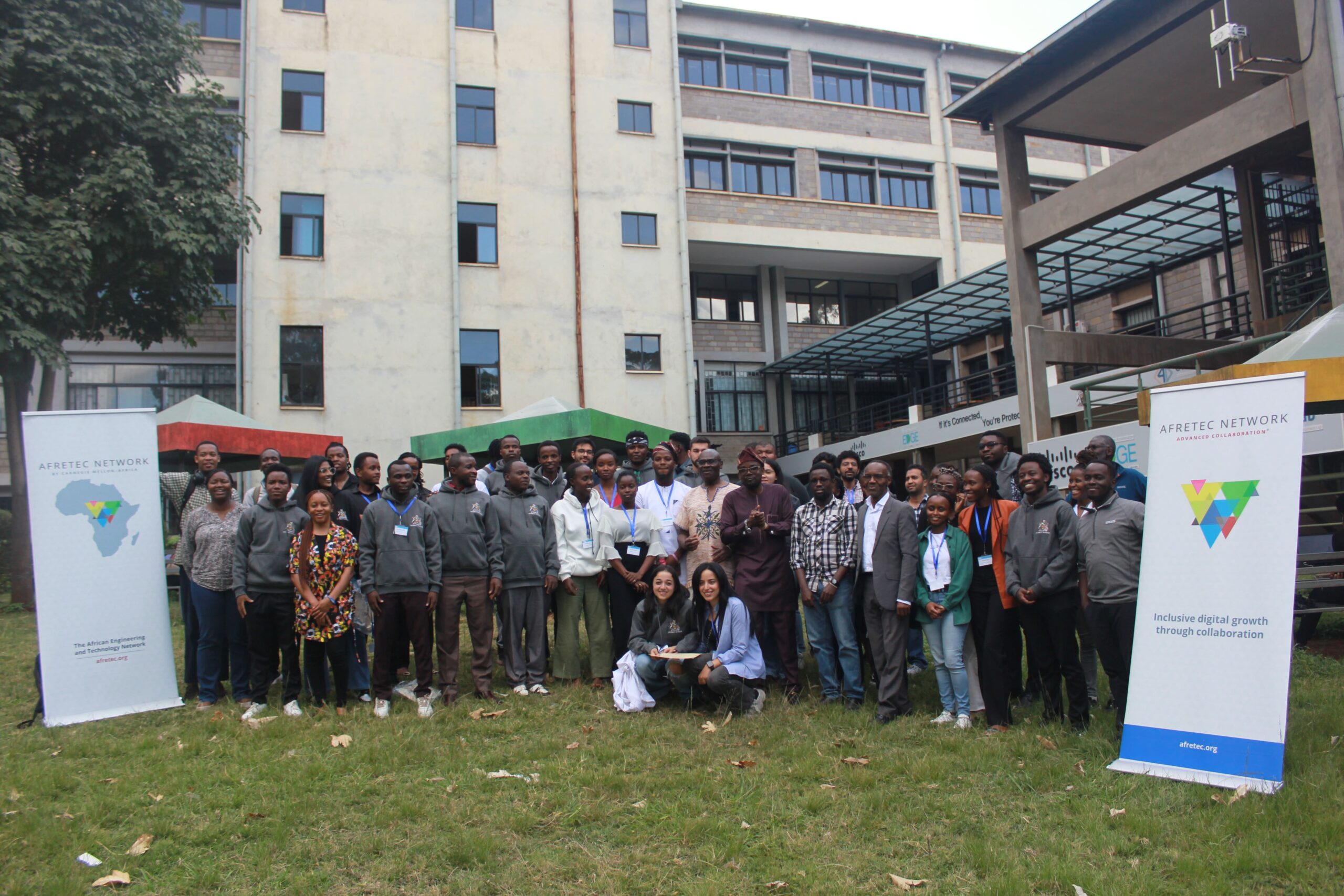In a captivating display of innovation and teamwork, the Afretec UoN Student Makerthon 2024 brought together some of Africa’s brightest minds from leading technology-focused universities at the University of Nairobi. This prestigious event, held from October 27 to November 1, 2024, was hosted by the C4DLab, Department of Computing and Informatics.
Sponsorship and Participation
Carnegie Mellon Univeristy—Africa, through Afretec, a network of esteemed universities, sponsored this event, with the following institutions in attendance:
- University of Nairobi (Kenya)
- Carnegie Mellon University—Africa (Rwanda)
- University of Rwanda (Rwanda)
- University of Lagos (Nigeria)
- University of Witwatersrand (South Africa)
- American University in Cairo (Egypt)
Pillars of Innovation
The Makerthon fell under Afretec’s third pillar, Entrepreneurship and Innovation, one of the five pillars that drive their mission. The other pillars include:
- Teaching and Learning: Enhancing educational experiences through innovative teaching methods and learning opportunities.
- Knowledge Creation: Promoting research and development to generate new insights and technologies.
- Inclusivity and Diversity: Fostering a culture that embraces diversity and ensures inclusive participation.
- Impact: Creating meaningful changes that positively affect communities and drive social progress.
Convened by Dr. Sam Ruhiu, Entrepreneurship and Innovation pillar head at the University of Nairobi, the event showcased the collaborative efforts of facilitators, including:
- Professor Sunday Adebisi, University of Lagos (Afretec Entrepreneurship and Innovation Pillar Head)
- Mr. Linda Hasi, University of Witwatersrand (Head of Student Entrepreneurship Education and Development (SEED), Entrepreneurship Hub)
- Mohamed Zeda, American University in Cairo (Principal Investigator, Afretec Project, American University in Cairo)
- Ms. Caroline Jelangat, Department of Environmental and Biosystems Engineering, University of Nairobi
- Mr. Ernest Kimani, Department of Electrical and Information Engineering, University of Nairobi
- Mr. Peter Oketch, Department of Physics, University of Nairobi
- Mr. Favour Chananel, co-founder, Stratenev
The Makerthon had been organized around these objectives:
- Encourage creativity and innovation among participants.
- Provide a platform for networking and collaboration.
- Enhance participants’ skills in technology, design, and entrepreneurship.
- Develop practical solutions to real-world problems.
A Week of Immersive Learning and Creativity
The Makerthon kicked off with welcoming activities, team building, and a visit to Nairobi’s iconic Giraffe Centre, setting the stage for a week of intense collaboration and creativity. Students worked in diverse teams, representing multiple universities, to tackle real-world problems through innovative solutions in various sectors, such as agriculture, healthcare, and climate change.
Programme Highlights:
- Day 1: Welcoming activities, team building, and a visit to the Giraffe Centre, followed by a welcome dinner.
- Day 2: The official opening of the Makerthon at the C4DLab, with welcoming remarks from the convenor and various university officials. Following the opening, participants traveled to a field site for an immersive experience to better understand real-world challenges, ending with debriefing sessions back at the lab.
- Day 3: The teams engaged in ideation and problem definition sessions, working on solution prototypes. The day included facilitated sessions on empathy discovery, problem definition, and ideation strategies.
- Day 4: Participants presented their prototypes and received speed mentoring from industry experts. The day also featured sessions on revisiting empathy, problem ideation, solution development, and additional prototyping.
- Day 5: Business design and storytelling were the focus, with teams preparing for their final pitches. Facilitated sessions included business value proposition and speed mentoring with experts.
- Day 6: High-fidelity prototyping and final pitch presentations. The day culminated with judging, feedback, and the awards ceremony.
Collaboration at its Best
Throughout the event, students had the opportunity to engage in empathy discovery, problem-solving, and prototyping, guided by seasoned facilitators and industry experts. The facilitators carefully guided the teams through the five days with an eye on instilling principles of design thinking, focusing on user-centric innovation that solves real-world problems. The spirit of collaboration was palpable as participants navigated the challenges of teamwork, network building, and strategic partnerships.
Recognizing Excellence
The Makerthon’s competitive spirit was heightened with the announcement of the winning teams. These exceptional teams earned a chance for inclusion in a start-up incubation program and mentorship opportunities. The innovations presented revolved around critical areas such as agriculture, healthcare, and climate change, demonstrating the students’ commitment to addressing pressing continental challenges. There were six teams in total, each contributing unique solutions.
Expected Outcomes:
It was expected that at the end of the Makerthon, the students would be able to:
- Demonstrate enhanced creativity and innovation skills.
- Establish valuable networks and collaborations.
- Develop practical solutions to real-world problems.
- Demonstrate increased ability to use technology and design for entrepreneurship
Professor Sunday Adebisi announced the judges’ decision, noting that while there were six top competitors, only three would secure the top spots. He encouraged the teams to focus on creating meaningful, human-centered innovations that need not be overly complex.
Dr. Ruhiu thanked the participants, facilitators, and judges for making the event a success. He also expressed gratitude to the Afretec Office at the University of Nairobi for its unwavering support of innovation within the university.
Prof. Francis Mulaa, Deputy Vice-Chancellor, Research Innovation and Enterprise, and of Afretec Principal Investigator at the University of Nairobi, closed the event, emphasizing the collective effort needed to create change. “We are honored as the African family to welcome you all to the University of Nairobi,” he said. He highlighted the goal of Africa Tech to reach as many young people as possible: “As Africa Tech, we would like to expand this initiative to reach as many young people as possible.” Prof. Aldo emphasized the proactive role required of young entrepreneurs, noting, “There is no industry that is coming. It is you, now go out and create those industries.”
Prof. Mulaa pointed out the value of the gathering, offering access to contacts in eight African countries, including Rwanda. He encouraged participants to embrace entrepreneurship with a balanced mindset: “If you have a product that can be sold in Kenya, Nigeria, Rwanda, or South Africa, these contacts are your first points of entry.” He concluded with an inspiring message: “I wish you a beautiful and adventurous journey. To be an entrepreneur, embrace a bit of greed—not selfishness—just enough to seek profitability. Your journey begins now; go build your industry!” After delivering his impactful speech, Prof. Aldo awarded the certificates, marking the end of the event with a sense of accomplishment and encouragement.
Looking Ahead
As the event came to a close, the excitement and inspiration generated among the students were unmistakable. The Makerthon experience was more than just a competition; it was a testament to the power of collaboration, creativity, and the shared goal of driving technological innovation in Africa. The Afretec UoN Student Makerthon 2024 has undoubtedly left an indelible mark on all who participated, setting the stage for future groundbreaking achievements and continued growth in entrepreneurship and innovation across the continent. The first three teams out of the six proceed to the next stage, which is incubation acceleration.


